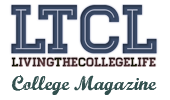Find Your Career Based on Your Personality
The Myers-Briggs Type Indicator (MBTI) is a personality quiz that has been in use since 1962. There are four different personality preferences and everyone leans one way or the other. They’re either introverts (I) or extroverts (E), they either use intuition (N) or sensing (S), they either rely on thoughts (T) or feeling (F), and they prefer to either judge (J) or perceive (P). These preferences add up to 16 unique personality types.
One personality type isn’t better than all the others, and people can change their personality type as they age. Instead, these personality types simply combine those traits that make each of us unique. From there, we can learn about our strengths, weaknesses, best skills, and even which career would be best.
ENFP – Scientist
Image via Flickr by RDECOM
ENFPs make up around 7 percent of the population. They’re charismatic, social, and usually very popular. While they’re natural leaders, they have no interest in controlling others, but their extraverted nature means they have a tendency to seek others’ approval. Unfortunately, they can get bored easily, so they need to avoid careers with a rigid routine. Instead, ENFPs should focus on a career as scientists. They can use their high logic skills as in the field of medicine, or focus on environmental science where they can work on different projects all the time.
ISTJ – Lawyer
At around 13 percent of the population, ISTJ is one of the most popular personality traits. Since they’re introverted, ISTJs prefer to work alone instead of in teams. They enjoy logical thinking, and like to make decisions based on observations instead of emotions. They’re very hard workers, and they don’t mind putting in extra time or extra work to get the job done. However, they do have strong opinions on what they feel is the correct way to do a job, and will sometimes refuse to listen to others. Even so, many ISTJs find rewarding careers in law. They can represent others in the court as a lawyer, or even oversee trials as a judge.
ISTP – Mechanic
At around 5 percent of the population, ISTPs have unique personality traits. They’re interested in how things work, and routinely enjoy taking things apart to learn more about them. They are logical and practical, and they enjoy working with their hands. While ISTPs are introverts, they’re action-oriented and good with people. However, they don’t do well in structured environments, or in careers where abstract thinking is a requirement. Instead, ISTPs would make good mechanics. There, they can repair and maintain trucks and cars, perform basic maintenance, and test systems to make sure they’re working correctly.
ENTJ – Executive Officer
ENTJs are about 3 percent of the population. They have excellent communication skills. They’re also self-confident and are natural leaders. As a result, they never seem to have a difficult time convincing others to follow their plans. They’re very decisive, and they know what they want and how to achieve it. Unfortunately, because of these traits, they can come across as cold and uncaring. However, these traits also mean they would make good executive officers. In this role, they can come up with plans to lead a business. They work with other executives and staff to manage financials and general operations of the company.
ISFJ – Nurse
ISFJs consist of about 12.5 percent of the population. This personality trait is known for its patience, practicality, and reliability. They are very aware of the feelings of others, and they’re prone to focus on what people want and need. They tend to work hard to make sure they meet their goals. They don’t enjoy confrontation, and they dislike abstract work that they don’t understand. With these traits in mind, ISFJs are ideal for nursing. For those interested in pursuing this job, a master of science in nursing can open the door to a career as a registered nurse, licensed practical nurse, or physician assistant.
Your personality type can play a large role in finding a career that’s fulfilling and challenging. By paying attention to your likes, dislikes, and skills, you can enter into a field that naturally suits you.



